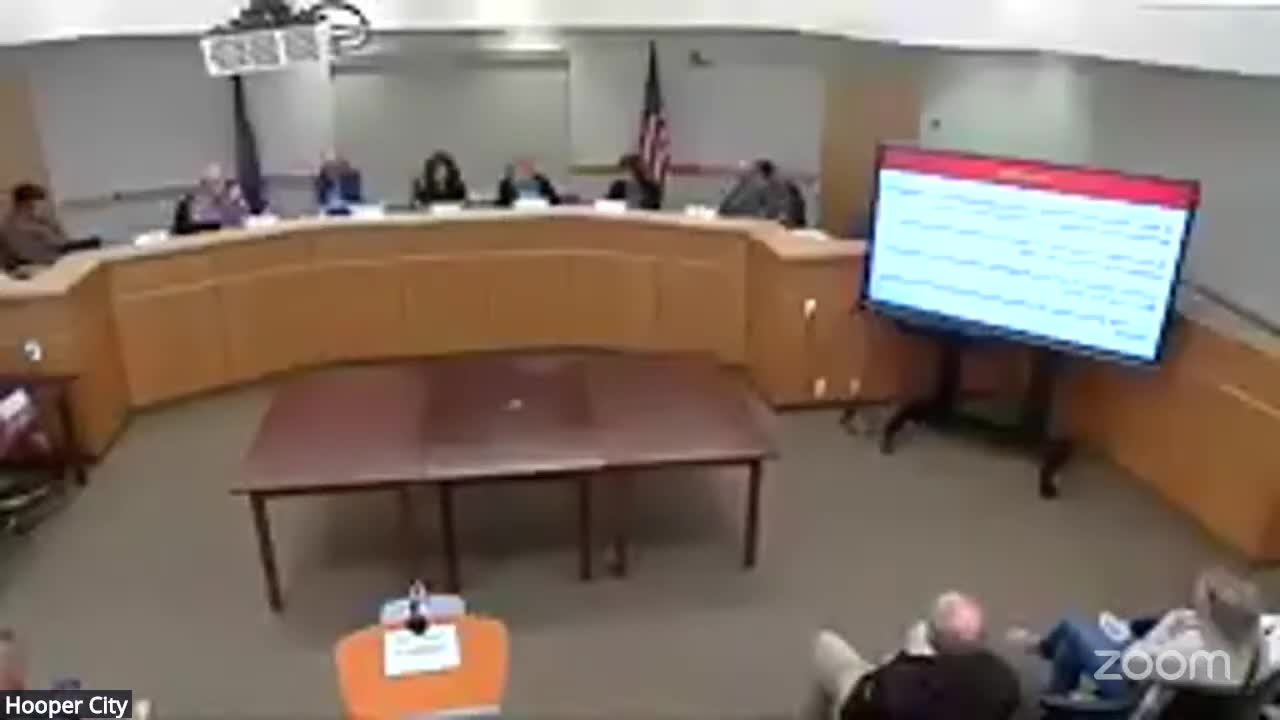Hooper council fails to win unanimous vote to strip mayor of employee, finance authority
Get AI-powered insights, summaries, and transcripts
Subscribe
Summary
A proposal to remove certain mayoral authorities in Hooper failed on Thursday after the five-member council did not reach the unanimous vote required under Utah law.
A proposal to remove certain mayoral authorities in Hooper failed on Thursday after the five-member council did not reach the unanimous vote required under Utah law.
Council Member Ray Hill moved to adopt an ordinance under Utah Code section 10-3b-303 removing the mayor's authority over city employees and over financial administration; Council Member Ryan Wilcox seconded the motion. Council members debated staffing, morale and the city's financial controls for more than an hour; the motion failed when at least one council member and the mayor voted against it.
Why it matters: Council members who supported the motion said they were acting out of concern for staff retention and the practical risk to operations if specialized public-works employees leave. Council Member Hill argued the council needs clearer supervisory control to "protect these people," citing a small sewer crew and the city's limited spare equipment. Opponents said the timing was poor, that there has been insufficient public documentation of alleged misconduct, and that structural changes so close to an incoming group of newly elected council members could be disruptive.
Public comment: More than a dozen residents spoke during an extended public-comment period. Speakers repeatedly asked the council for specifics: "If something illegal, egregious happened, we as citizens have a right to know what's going on," said Sierra Hillstrom. Several urged postponement until the three council members elected in the recent election take office in January. Others urged the council to pursue mediation or to allow newly elected members to weigh in before altering the form of government.
Mayor's response: Mayor Sherry Bingham rejected the implication that she was personally responsible for social-media posts made by a family member and said she had not posted the material that circulated. "I have not posted things on social media," she said, adding that she has tried to work constructively with staff and that she spends substantial time on mayoral duties.
Council debate: Advocates for the ordinance pointed to employee turnover, unfilled positions and a series of operational needs the mayor and council discussed in public sessions. Hill summarized those concerns in part as a problem of morale and continuity in public works: "We need to protect these people, and we need to ... attract new employees," he said. Opponents emphasized process concerns, with multiple residents and at least one council member requesting documented allegations before the council acts.
What the motion would have done: The motion directed legal counsel to rework the draft ordinance so it would remove specifically (a) unilateral authority to hire, fire and supervise city personnel and (b) authority over city finances and related administrative duties. Under state code cited by council members (10-3b-303), a municipality operating under a six-member council form of government may remove, by ordinance, powers of the mayor; the council noted the change can be reversed by a later ordinance.
Outcome: The vote was not unanimous and the motion failed. Council Member Hill and Council Member Wilcox voted in favor; Council Member Northrop and Mayor Bingham voted no; other council members recorded votes in the roll call consistent with support for the motion but the required unanimous threshold was not met.
Next steps: Council members discussed the possibility of revising the draft ordinance to focus narrowly on particular administrative duties and to bring a revised ordinance back for consideration. Several residents and at least one newly elected council member urged delaying any final action until incoming council members are seated or until the council publicly documents specific allegations that would justify a structural change.
Sources and evidence: The account above is drawn from public comment and council discussion during the meeting. Key passages include Council Member Hill's motion and explanation of employee and budget concerns and Mayor Bingham's response defending her conduct and noting staffing and capital-equipment shortfalls described by public-works staff.
